Did you know the first hit by the “King of Rock n Roll” had to be rewritten because of its lewd lyrics? No, not Elvis. The true King of Rock — Little Richard — had his first hit single with “Tutti Frutti.”
Rock n Roll was invented by Black, queer, musicians.
Because of a white-washed history, few of these rock gods received the glory they deserved. Today, Little Richard and his pantheons are but a footnote in glitzy biopics dedicated to the people who appropriated their music.
Rock n roll was birthed from the fusion of gospel chord structures and fast-beat blues that artists experimented with in the 1940s. Artists like Sister Rosetta Tharpe and Big Mama Thornton, both queer Black women, were among the first to transform gospel into the guitar and piano popping rhythms that eventually morphed into the genre we recognize today as “rock.”
Rock was rebellion. This new style was a protest against violent restrictions placed on Black Americans. For Sister Rosetta Tharpe, it was also an insurrection against restrictions on women and queer people within the church.
Tharpe and Thornton are our Godmothers of rock n roll. And our actual true “King of Rock n Roll” (or “Queen” as he once proclaimed) was a queer drag queen whose first single was supposed to be an ode to butt stuff.
Little Richard, who early on performed in drag under the name, Princess LaVonne, wrote a descriptive little tune that helped popularize rock n roll. That booty-lovin ditty was “Tutti Frutti.”
The sanitized, safe-for-radio version that we all know, goes like this:
Wop bop a loo bop a lop bom bomTutti frutti, oh rootie
Tutti frutti, oh rootie
Tutti frutti, oh rootie
Tutti frutti, oh rootie
Tutti frutti, oh rootie
A wop bop a loo bop a lop ba ba
I got a gal, named Sue, she knows just what to do
I got a gal, named Sue, she knows just what to do
She rock to the East, she rock to the West
But she's the gal that I love best
The original lyrics to “Tutti Frutti” are, um, wildly different:
Tutti frutti, good booty
Tutti frutti, good bootyIf it's tight, it's alright
If it's greasy, it makes it easy
Even the boring version of “Tutti Frutti” is cited as an inspiration to a generation of rockers that followed. David Bowie said he “heard God” the first time he listened to “Tutti Frutti” as a 9-year-old. (Imagine if he had heard the original version.) Nearly every white Rock n Roll star in the 1950s covered Little Richard’s songs, including Bill Haley (who is often cited by white people as the first rock n roller with the tune “Rock Around the Clock”), Pat Boone, Buddy Holly, Jerry Lee Lewis, the Everly Brothers, and Elvis Presley. Presley covered four of Little Richard’s songs on his first two albums, including “Tutti Frutti,” which was a b-side to “Blue Suede Shoes.” This, along with Big Mama Thornton’s successful RnB hit, “Hound Dog” is what skyrocketed Elvis to fame.
As if helping to launch Elvis’ career wasn’t enough, Little Richard did the same for The Beatles. Paul McCartney and John Lennon bonded over their love for Little Richard’s music and some of the very first songs they played together for audiences were “Long Tall Sally” and “Hey-Hey-Hey-Hey.” The band’s major break came in 1962 when they were asked to join Richard’s European tour as his opening act. Backstage before shows, Richard coached Lennon and McCartney on how to imitate his vocal stylings. You can hear that imitation on songs like, “Twist and Shout.”
Rock n roll was born from rebellion and Little Richard was the template. His songs oozed sex and hinted at his queerness. His No. 1 hit, “Good Golly Miss Molly'' isn’t just about a woman who “sure likes to ball.” “Molly” is slang that dates back to the 18th century and means “gay man.” Any gathering place for gay men was a “molly house.” Little Richard’s hit “Lucille” was written as an homage to a drag queen from his hometown of Macon, Georgia who went by the name of “Queen Sonya.”
Richard’s penchant for pompadours and pancake makeup would’ve made him a target in the racist and homophobic 1950s if it weren’t for his raucously outrageous music that shocked and delighted bored teenagers. His effeminate appearance was upstaged by his bawdy, in-your-face, live performances that the spiritless clamored to glimpse. Richard’s appeal grew so quickly that his concerts were some of the first racially integrated, even in the Deep South where racism was most rampant. Women of all races threw their panties onto the stage so often that Richard decided to play up his effeminate persona so white men wouldn’t think he was after their girls.
“We were breaking through the racial barrier. The white kids had to hide my records ’cause they daren’t let their parents know they had them in the house.”
- excerpt from “The Life and Times of Little Richard”
Imagine being brave enough in the 1950s to use your feminine authenticity to make you famous, then having to rely on it as a self-defense mechanism from white supremacy. That’s a tricky feat — maintaining commercial appeal and personal integrity. And it was something Richard struggled with throughout his life. For most of his career, Little Richard grappled with his religious upbringing and his queerness, choosing one over another at various points — as if they couldn’t co-exist. At any given time, he was either too Black for white audiences, too sexual to be religious, or too religious to be queer.
“He was very, very good at liberating other people,” states Jason King, a historian featured in the “I Am Everything” documentary. “He was not good at liberating himself.”
Despite his struggle to accept himself fully, he always demanded acceptance from others, never acquiescing when mainstream culture diminished his place as rock royalty. Even as his career waned, Richard took every public appearance as an opportunity to reassert his status as the “Originator,” the “Innovator,” the “Handsomest,” the “Architect of Rock n Roll.” Perhaps the most famed example is when Richard presented the award for Best New Artist at the 1988 Grammys. Immediately going off script, Richard pokes fun at co-presenter, David Johansen (of New York Dolls and Buster Poindexter fame) for having the same pompadour haircut that Richard rocked for most of his career. “I used to wear my hair like that. They take everything from me.” When a very annoyed Johansen attempts a retort, he’s immediately told to “shut up.” Richard then uses his place at the podium to chastise the Recording Academy’s failure to award him a Grammy, despite his monumental influence on popular music. He proceeds to hold an increasingly anxious audience captive for almost three full minutes — repeatedly announcing himself as the winner.
Rock n roll is a genre born out of rebellion by Black, queer people. And Little Richard’s legacy offers us all a model on how to reclaim the spaces that have always belonged to us.

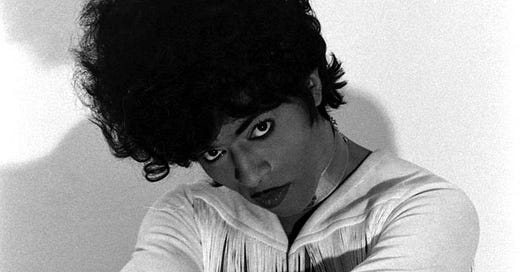




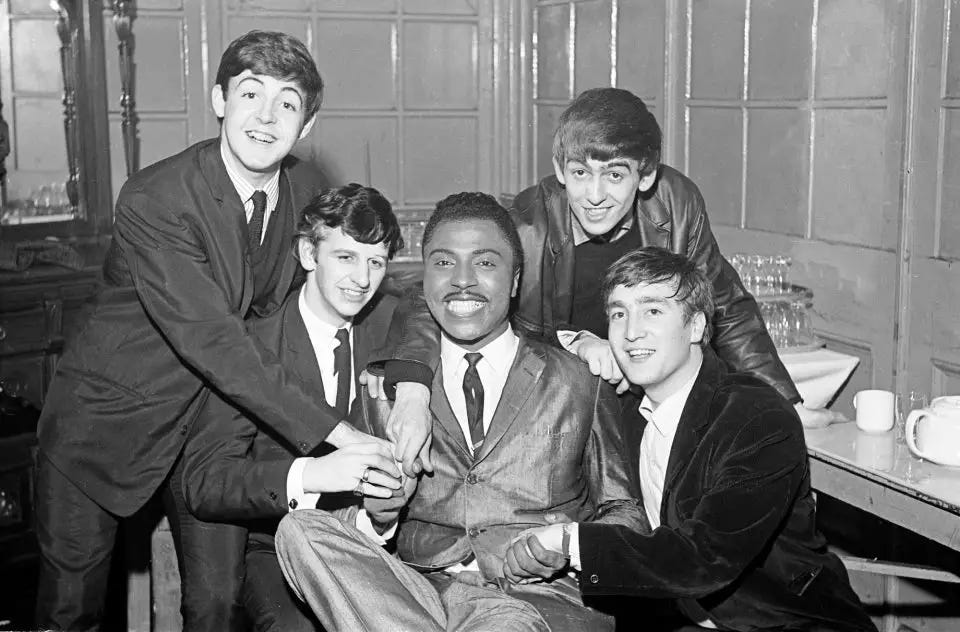
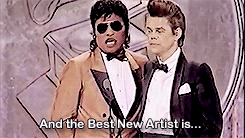




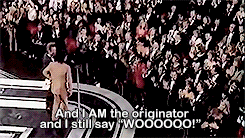
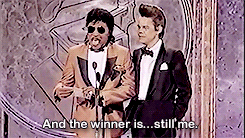
Love.
AMAZING! Can't wait for the next one.